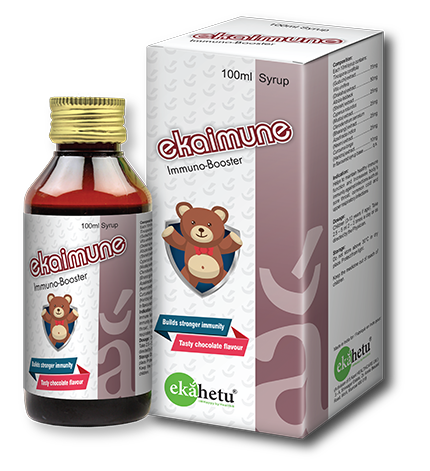Tinospora cordifoliaT. cordifolia led to activation of macrophages and as macrophages are the first line of defense in our body and play a crucial role in innate (nonspecific) and adaptive (specific) immunity. T. cordifolia was found to boost the phagocytic activity of macrophages, remarkable augmentation in the production of cytokines, up-regulation of interleukin-6 (IL-6) and enhanced antigen specific recall response. Scientists have attributed these actions to the glycoprotein isolated from the plant stem.
Azadiracta indicaNeem or A. indica has been used in Ayurveda for thousands of years to maintain health. It is one of the main ingredients in blood purification formulas. Many modern clinical studies have identified a number of compounds in neem that can effectively regulate the functions of the immune system. Neem is one the several traditional compound medicines prescribed in Ayurveda texts that can boost children’s immunity.
Albizia lebbeckA. lebbeck is considered as an excellent anti-allergic herb in Ayurveda. The immunomodulatory effect of the bark of A. lebbeck was successfully evaluated and validated by studying humoral and cell mediated immune responses. Many pharmacological studies revealed that A. lebbeck reduces the release of histamines through a stabilizing effect on Mast cells and mildly suppresses the activity of T-Lymphocytes reducing the level of allergy-inducing antibodies.
Cyperus rotundusIn Asian countries, the rhizomes of C. rotundus, which are used as traditional folk medicines for the treatment of stomach and bowel disorders and inflammatory diseases, have been widely, investigated. In one of the in vivo study, it was found that the extract of C. rotundus is effective to stimulate cell mediated immunity, when the elevation of immune response was compared with the standard immunity enhancing drug Vit. E. Phenolic compound and other phytochemicals in C. rotundus had induced the immunity elevation.
Clerodendrum serratumC. serratum (Bharangi) is a one of the common herbs used in the treatment of common cold, chronic sinusitis, allergic rhinitis, cough and other chronic respiratory problems. Aqueous extract of C. serratum has shown to stimulate both innate and adaptive immune response either through stimulation of macrophages or through stimulating the release of factors that are involved in proliferation of bone marrow cells.
Curcuma longaC. longa (Turmeric) improves the immunity by supporting functions of immune cells. Scientists validated that the extract of turmeric exhibited induced-nitric oxide (NO) production in RAW264.7 macrophages. The results suggested the immunomodulatory effects of Turmeric. In addition, the polysaccharides present in Turmeric up-regulated function of telomerase reverse transcriptase (TERT) equally to the phenolic compound from turmeric, curcumin. The ukonan family of polysaccharides assist in promoting cellular immune responses, tissue repair and lifespan by enhancing immune response and telomere function.
Vitis viniferaGrape leaves, sap and fruit have been used medicinally since the time of the Greek empire. Grape seed has been used to treat immune system disorders due to its antioxidant effects.

